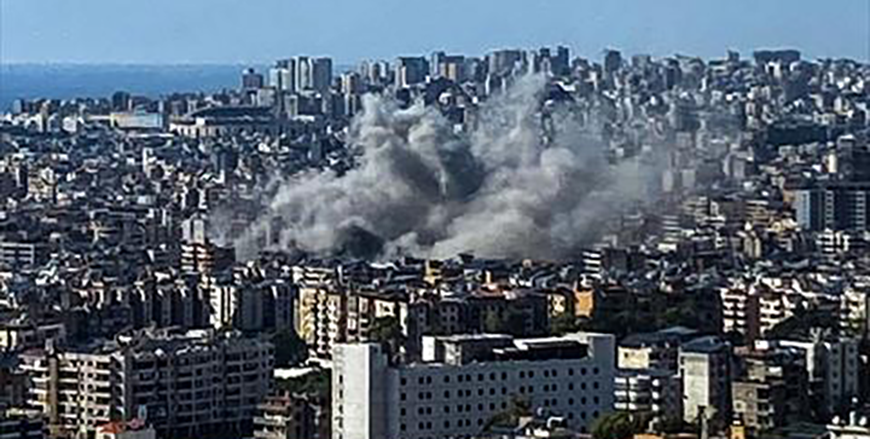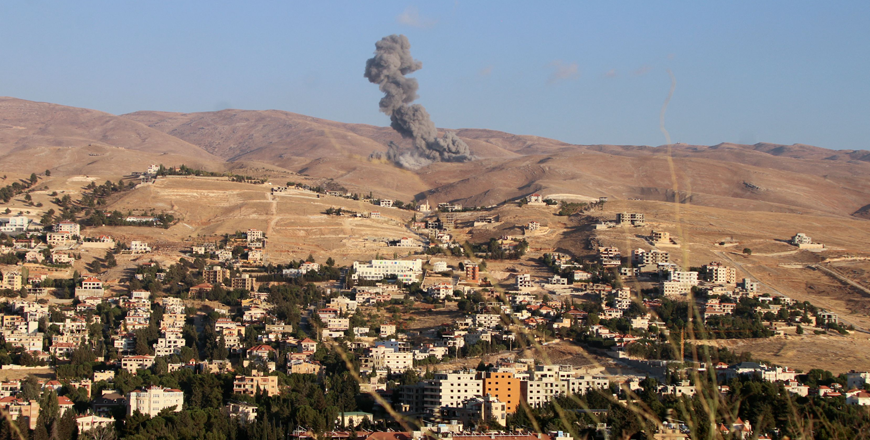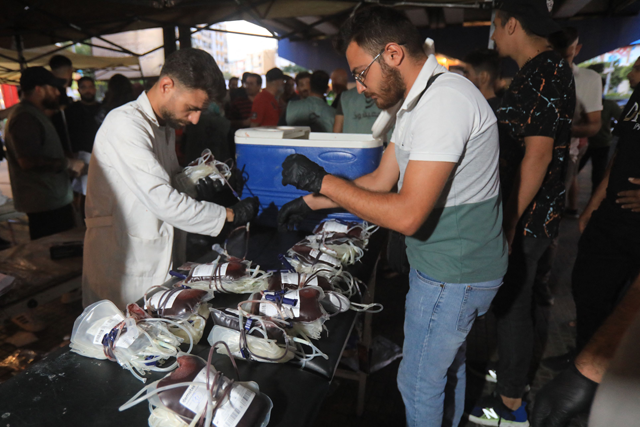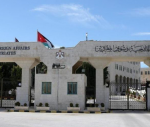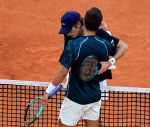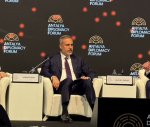You are here
Israeli strike kills Hizbollah commanders
By AFP - Sep 22,2024 - Last updated at Sep 22,2024
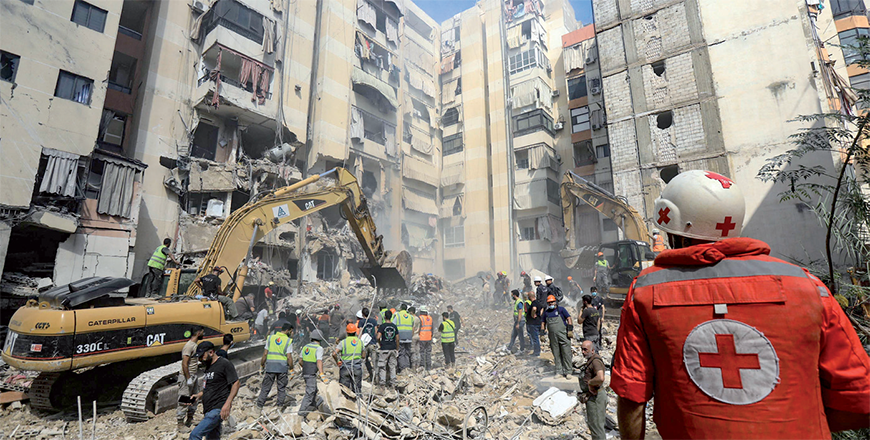
Rescuers sift through the rubble at the scene of an Israeli strike that targeted Beirut's southern suburbs a day earlier, as search and rescue operations continue on Saturday (AFP photo)
BEIRUT, Lebanon — Hizbollah was in turmoil on Saturday after Israel took out two leaders of its elite operations unit in a strike on a command meeting in a Beirut stronghold that Lebanese authorities said killed 31 people.
Lebanese Health Minister Firass Abiad said three children were also killed in Friday's strike on an underground meeting room, which AFP journalists said left a huge crater in a densely populated neighbourhood of the capital's southern suburbs.
Israel said the strike killed the head of Hizbollah's elite Radwan Force, Ibrahim Aqil and several other commanders.
The military said on Saturday it was again hitting targets "belonging to the Hizbollah in Lebanon", without elaborating.
It said it also targeted a "Hamas command and control centre" in Gaza City it alleged was "embedded inside" a school where rescuers said 19 civilians were killed in adjacent buildings used as a shelter.
Abiad said emergency services worked “through the night” to recover dead and wounded from the Beirut strike, adding that “a residential building collapsed on top of occupants” after the Israeli attack.
The Radwan Force has spearheaded Hizbollah’s ground operations, and Israel has repeatedly demanded through international mediators that its fighters be pushed back from the border.
Coming after sabotage attacks on communications devices that killed 37 people in Hizbollah strongholds, Friday’s strike raised new questions about the Iran-backed group’s security arrangements.
Hizbollah said a second senior commander, Ahmed Mahmud Wahbi, was also killed. He headed the group’s operations against Israel from the onset of the Gaza war in October until the start of this year.
Confirming the death of Aqil, who was wanted by the United States for involvement in the 1983 bombing of the US embassy in Beirut, Hizbollah hailed him as “one of its great leaders”.
It was the second Israeli strike on Hizbollah’s military leadership since the Gaza war began. In July, an Israeli strike on Beirut killed Fuad Shukr, a top operations chief.
It also followed sabotage attacks on pagers and two-way radios used by Hizbollah on Tuesday and Wednesday, which killed 37 people.
Stephane Dujarric, spokesman for UN Secretary General Antonio Guterres, said the world body was “very concerned about the heightened escalation” and called for “maximum restraint” from all sides.
Israel’s military said it conducted a “targeted strike” against Aqil, which a source close to Hizbollah said killed 16 Radwan Force members.
“The command of the Radwan Force was meeting in the basement of the building,” the source said.
Washington had offered a $7 million reward for information on Aqil, calling him a “principal member” of an organisation that claimed the 1983 US embassy bombing which killed 63.
No refuge
The focus of Israel’s firepower for nearly a year has been on Gaza, but with Hamas much weakened, that focus has now moved to Israel’s northern border.
Hamas called it a “brutal and terrorist aggression” and an “escalation”.
Iran accused Israel of seeking to “broaden the geography of the war”.
Months of near-daily cross-border exchanges have killed hundreds in Lebanon, mostly fighters, and dozens in Israel and the annexed Golan Heights, forcing tens of thousands on both sides to flee their homes.
The latest blow to Hizbollah came after thousands of its operatives’ pagers and walkie-talkies exploded over two days, killing 37 people and wounding thousands.
Hizbollah chief Hassan Nasrallah vowed on Thursday that Israel would face retribution for those blasts.
Related Articles
BEIRUT, Lebanon — Israel said Friday that it killed the commander of Hizbollah's elite unit in a strike that Lebanese officials said left 14
BEIRUT, NEW YORK — Lebanon said more than 350 people including 24 children had been killed in Israeli strikes on the country's east and sout
BEIRUT — Hundreds of pagers used by Hizbollah members exploded across Lebanon on Tuesday, killing at least nine people and wounding so


